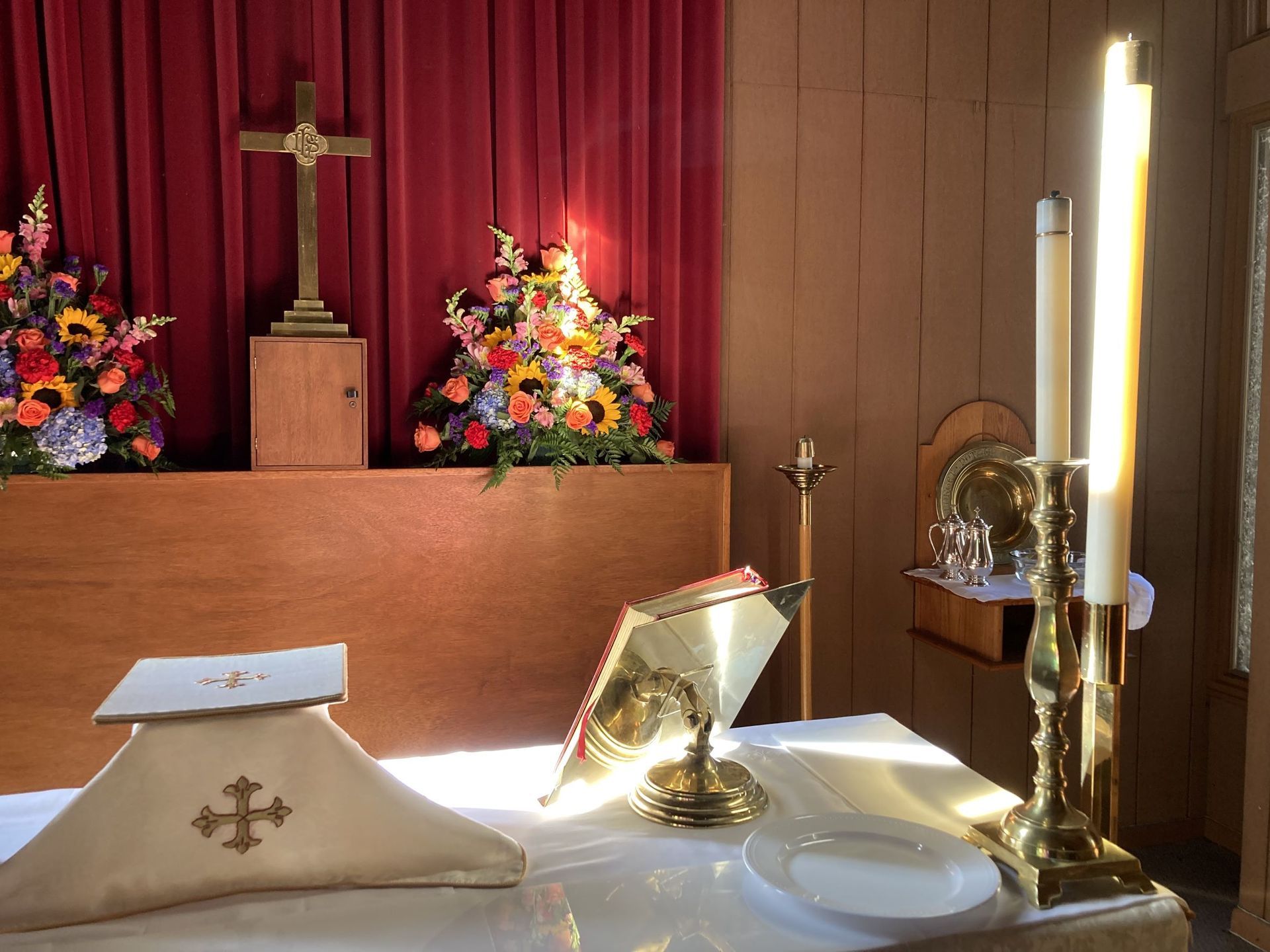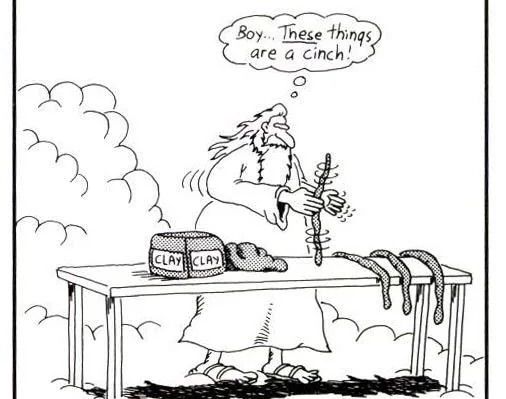Pub Theology 12/10/24 -- Deep thoughts, deeper thinking

Those of us of a certain age surely remember the old Saturday Night Live bit, "Deep Thoughts" by comedian Jack Handey, a staple of the show back in the 1990s. Handey's collection of deep thoughts was first published in 1992, and little bits would be aired on SNL in between sketches, accompanied by bucolic imagery like that above, and soothing New Age music, It was a fun gag that produced gems like these:
- The purpose of a lock is to turn a door into a wall.
- When you buy and eat a half chicken, you are secretly sharing a meal with a stranger.
- Your car keys have traveled farther than your car.
- The object of golf is to play the least amount of golf.
- With every new sunrise, there is a new chance. But with every sunset, you blew it.
These were clever, often silly, and sometimes actually thought-provoking. It's been suggested that we can train ourselves to become deeper thinkers by asking ourselves, and really trying to contemplate the answers to, what are essentially unanswerable questions. A classic example of one such question is the familiar Zen koan "What is the sound of one hand clapping." Zen monks were instructed to meditate on and debate such cryptic questions, a typically frustrating and maddening exercise, as a way to acquire, through mental struggle, a deeper understanding of the question itself. That was the path to enlightenment.
This discussion comes from a source we've been turning to lately for inspiration for our weekly conversations, a regular feature at The Atlantic website by Arthur C. Brooks, whose pieces revolve around building our lives. In this article, Brooks suggests that we can improve our emotional health and grow as a person by wrestling with our own questions without clear answers. Questions like, Why am I here? or For what would I give my life? And, he continues, the questions that tend to matter the most to us are typically the least likely to have clear answers. In fact, trivial questions are generally easy to answer with clarity. That's why we like them, and shy away from the hard ones.
Further, he argues, thinking about hard questions is good for us:
"Taking the evidence all together, I’d propose a hypothesis that, as a society, we have become spiritually flabby and psychically out of shape because we haven’t been getting in the reps on challenging existential questions. As much research has documented, anxiety and depression have been exploding in the United States, especially among young adults. I believe that this is not because we’re thinking too much about the hard questions of life, but too little. As I’ve discussed previously, we pass our hours and days hypnotized by the trivia injected into our lives via our tech devices, and are less willing to delve into deeper matters. The elevated levels of sadness and fear are, I believe, at least in part the result of our philosophically sedentary lifestyle. Like the benefits of hard exercise, the short-term discomfort of big questions is necessary to avoid the long-term ill-health that comes from avoiding these questions."
And so, if we're going to treat this like exercise, then here are Brooks' suggestions for to build our philosophical muscles.
First, schedule your mental workout. "Choose a period of time each day—say, 30 minutes—that you can dedicate to weighing tough questions of real importance. First, ban all devices and allow no distractions; then figure out in advance what existential or spiritual challenges you plan to consider. You can use a paragraph or two of philosophy or scripture to focus your mind on a specific question, break it down, and improve your understanding."
Alternatively, go for a long walk. "For some people, a good alternative is a long walk alone, without devices, as a way to give room to your right-brain questions. Philosophers have long advocated this technique—Immanuel Kant was reputedly such a regular walker, to aid his deep thinking, that neighbors set their watches by his passing. Research has shown that walking naturally stimulates creative thinking and facilitates the ability to focus without being distracted."
Then there's this; Invite boredom. "One effect of our screen-centered culture is that we’re never truly bored. This might sound great, like a quality-of-life enhancement. But it isn’t. Experiencing boredom is crucial for abstract reasoning and insight, because it helps stimulate the brain’s default-mode network, the set of brain regions that becomes active when the outside world does not impinge on our mind’s attention. Neuroscientists have shown that such activity is vital for accessing high-level meaning. For this reason, building periods of boredom into our life really matters, because they no longer occur spontaneously."
So what deep thoughts do you have about all of this? Do you take time to ponder the unanswerable questions that swirl around us, or do you prefer to tune them out in favor of the trivial and easily answered? Do you think you would benefit from developing a habit of encouraging deep thinking like that outlined by Brooks above? What kind of unanswerable questions would you focus on in such a practice?
Will be inviting boredom if we take all of this on in our conversation this week? Join us for the discussion tomorrow evening, Tuesday Dec. 10, starting at 7pm at Casa Real in downtown Oxford, and find out.










